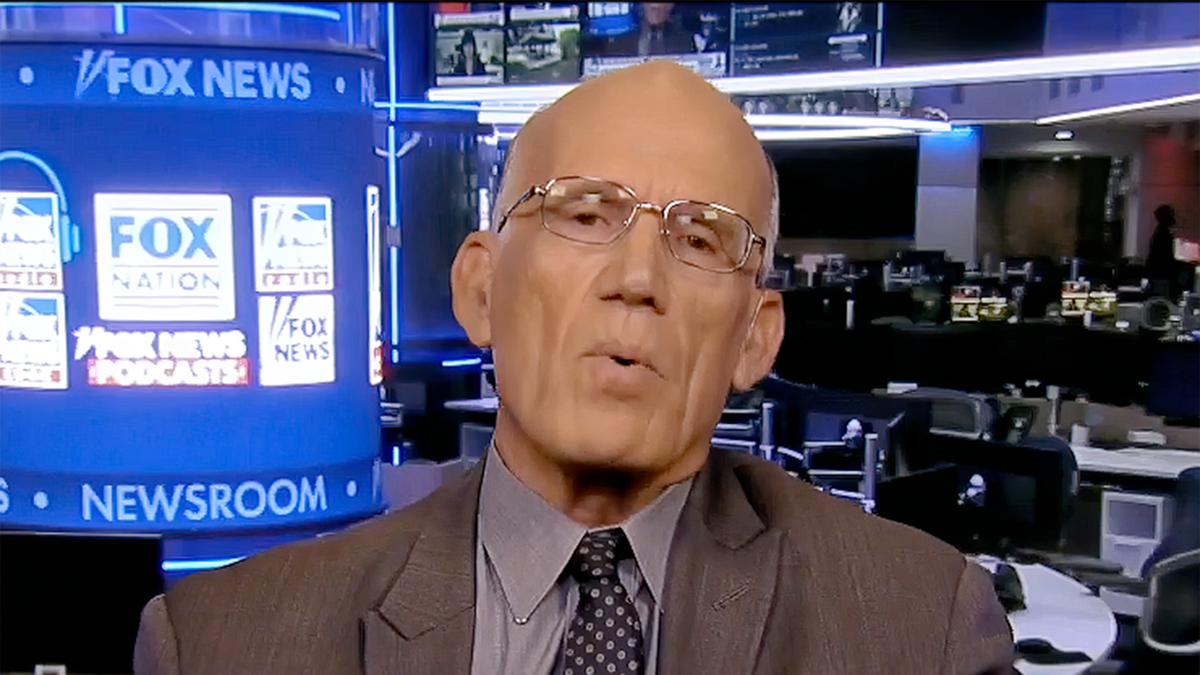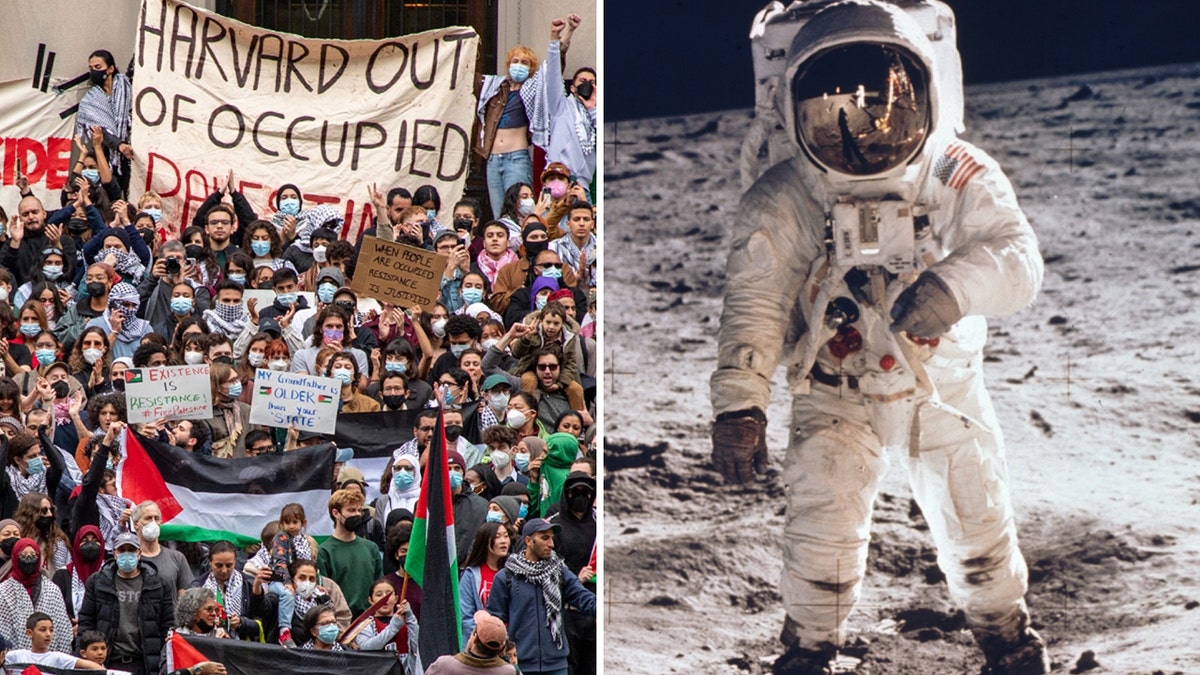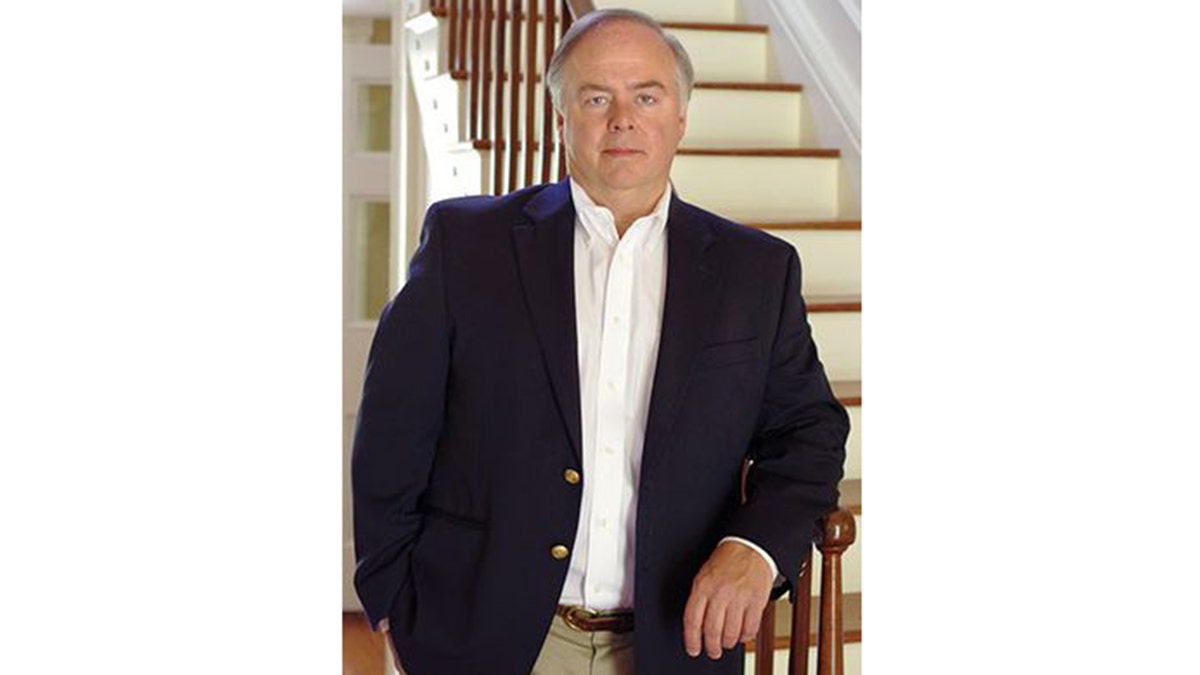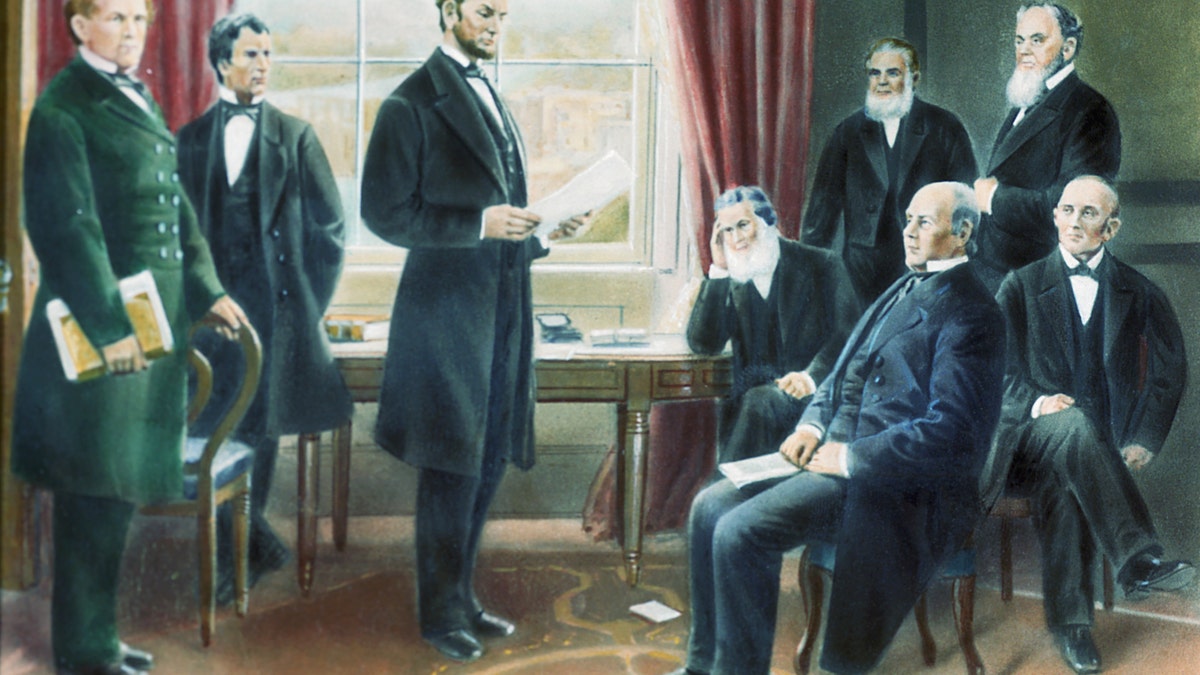Biden official butchers popular phrase coined by Ronald Reagan about government's role in everyday life
Education Secretary Miguel Cardona was caught on camera butchering a popular phrase coined by the late former President Ronald Reagan about the federal government's role in the everyday lives of Americans.
American exceptionalism was universally accepted for generations, here in the United States and even overseas.
The nation now faces an identity crisis, historians and scholars tell Fox News Digital, as powerful forces armed by woke ideology and fealty to big government stifle the individualism and creativity that fueled American exceptionalism for 250 years.
The United States, they warn, could soon identify as merely mediocre.
"We’re running on fumes," said Victor Davis Hanson, a senior fellow at the Hoover Institution, when asked if American exceptionalism still exists.
"We still have more talent and wealth than any other nation. We’re still the freest nation. But all of the odds are stacking up against the type of person who made America exceptional," he said.

Victor Davis Hanson, a senior fellow at the Hoover Institution, is pictured during an appearance on the Fox News Channel. The concept of American exceptionalism "is running on fumes," Hanson told Fox News Digital. (Fox News)
American exceptionalism is the belief that the United States is imbued with an unprecedented set of cultural values, political foundations, intellect, ambition and creativity that make it different and better than any other nation on Earth.
Unencumbered individualism has inspired the U.S. to unprecedented feats of creativity, technical achievement and economic growth.
"The odds are stacking up against the type of person who made America exceptional."
"American exceptionalism is still there, but it’s in danger of being extinguished by the Joe Biden administration," said historian and author Craig Shirley.
He believes that every step to concentrate power in Washington, D.C., is a blow to the individual and a blow to American exceptionalism.
Said Shirley, "If you believe in yourself, you believe in individualism, you believe in the values of the American Revolution — then you believe in American exceptionalism."

American exceptionalism, which made the U.S. the only nation to put men on the moon, is being challenged by leftist orthodoxy that stifles creativity, scholars say. At left, protesters at Harvard University. (JOSEPH PREZIOSO/AFP via Getty Images; NASA/Getty Images)
The idea of American exceptionalism took root in the U.S. and in the minds of aspirational people around the world in the late 19th-century, according to Hanson.
"It was the idea that both because of its size and its Constitution, the United States gave people the opportunity to succeed and to be rewarded in ways that Europe did not," said Hanson.
Immigrants found upward mobility and chances to prosper in the United States based on talent and ambition alone, rather than on family connections, that did not exist elsewhere in the world.
"That belief continued through most of the 20th century," said Hanson. "It's why we won two world wars and created most of the major inventions from atomic power to Silicon Valley."
The nation's exceptional meritocracy inspired millions of people from around the world to flood America's shores — where they were free to look at the world in new ways.

Arrival of Immigrants, Ellis Island, New York City, Bain News Service, 1920. (Universal History Archive/Universal Images Group via Getty Images)
Innovation in the United States changed the world dramatically in big and in surprisingly small ways.
Americans put men on the moon and powerful computers in the hands of almost every person on Earth.
Americans also created seemingly mundane things, from sliced bread to time zones to the electric guitar, by re-considering ordinary items in ways that people in other parts of the world never did.
They reshaped the culture of the globe in the process.
"If you believe in yourself, you believe in individualism … then you believe in American exceptionalism."
Modern woke and hard-left ideologies are stifling the meritocracy, creativity and fluidity at the heart of American exceptionalism, suggest Hanson, Shirley and others — causing them to raise red flags.
They and others believe academia has supplanted debate in favor of rigid leftist ideology, plus replaced meritocracy with identity politics and ideas such as diversity, equity and inclusion.

Craig Shirley is the author of four Ronald Reagan biographies, plus the upcoming 2024 release, "The Search for Reagan." (Courtesy Craig Shirley)
Hanson mentioned Claudine Gay, who recently resigned as president of Harvard University amid controversies over her qualifications, as an example of the dangers of substituting identity for merit.
"You expect the president of Harvard to be the leading academic in the nation," he said.
Instead, he said, "she was an affirmative action hire."
MEET THE AMERICAN WHO CREATED TIME ZONES, CHARLES F. DOWD, SCHOOLMASTER SET CLOCK FOR MANKIND
Harvard has suffered huge losses to both its finances and its reputation.
The bloated federal government, meanwhile, has grown to 2 million "unelected bureaucrats," Hanson said, devoted to "auditing, regulation and censorship."
Their efforts come at the expense of the creators and the "mavericks" essential to American exceptionalism.
"There is no other country in the world that embodied the blend of classical philosophy, Christianity and even Enlightenment ideas in the unique way America did in the founding of the republic from 1776 to 1789," Kim R. Holmes, former executive vice president at The Heritage Foundation, said in a lecture for the organization.

Members of the United States Marine Corps 5th Division raise an American flag on Mount Suribachi during the Battle of Iwo Jima, Feb. 23, 1945. America's victories in two world wars are seen as notable examples of American exceptionalism. (Joe Rosenthal/Photo 12/Universal Images Group via Getty Images)
"It was an exceptional (meaning uncommon) mix of liberty, limited government, natural rights, and religious liberty that made the American founding unique."
American exceptionalism is more than just jingoistic patriotism. Even the nation’s enemies looked at the United States and understood that exceptional forces were at work.
CLICK HERE TO SIGN UP FOR OUR LIFESTYLE NEWSLETTER
The United States rose with dramatic speed from an outpost of 4 million people in the North American wilderness that miraculously defeated the British Empire in war to a uniquely powerful place in world history in little more than 150 years.
"American exceptionalism was proven by the great authors, great inventors, great politicians and great public intellectuals of the past 200 years," said Shirley.
The historian is perhaps best known for his biographies of President Ronald Reagan, a prominent advocate of American exceptionalism.

Illustration depicting Abraham Lincoln reading the draft of the Emancipation Proclamation to his cabinet in 1862 (undated). The president received the first transcontinental telegraph on Oct. 24, 1861. (Getty Images)
"Reagan wanted to move power away from the government and toward the individual, weakening the government as the framers intended," Shirley said — all for the purpose of fueling the nation's most exceptional qualities.
"We shall nobly save, or meanly lose the last best hope of Earth." — Abraham Lincoln
Another president, Abraham Lincoln, may have defined American exceptionalism better and more succinctly than any politician, historian or scholar, while summing up the stakes of the battle to keep America exceptional.
CLICK HERE TO GET THE FOX NEWS APP
"We shall nobly save, or meanly lose," he said before Congress on Dec. 1, 1862, "the last best hope of Earth.".
For more Lifestyle articles, visit www.foxnews.com/lifestyle.










































